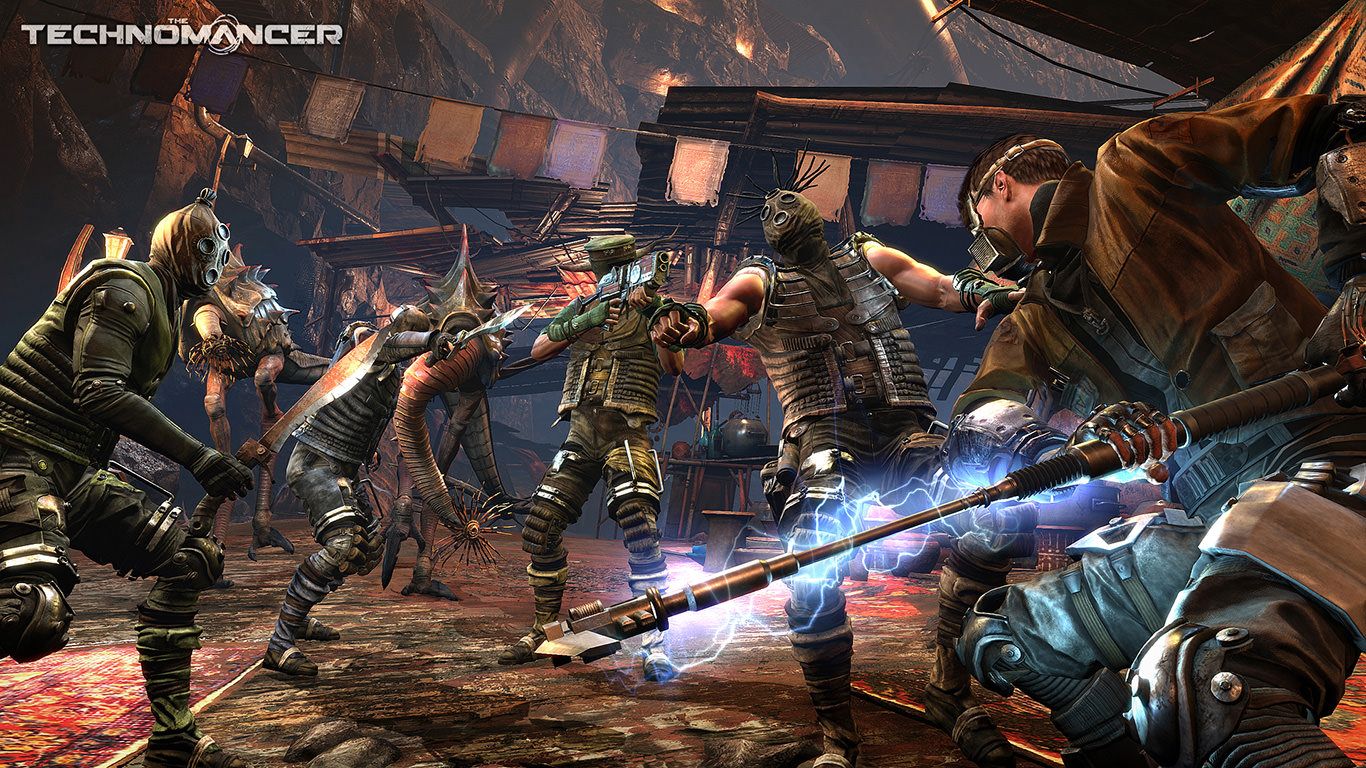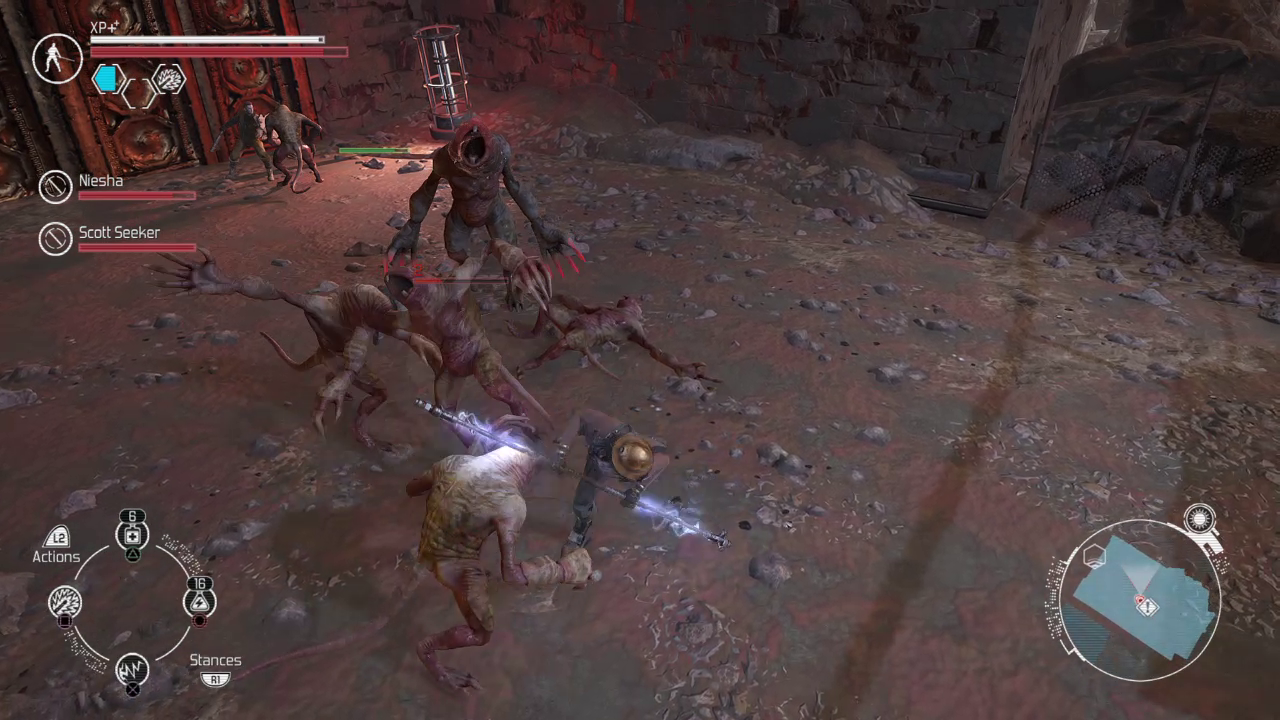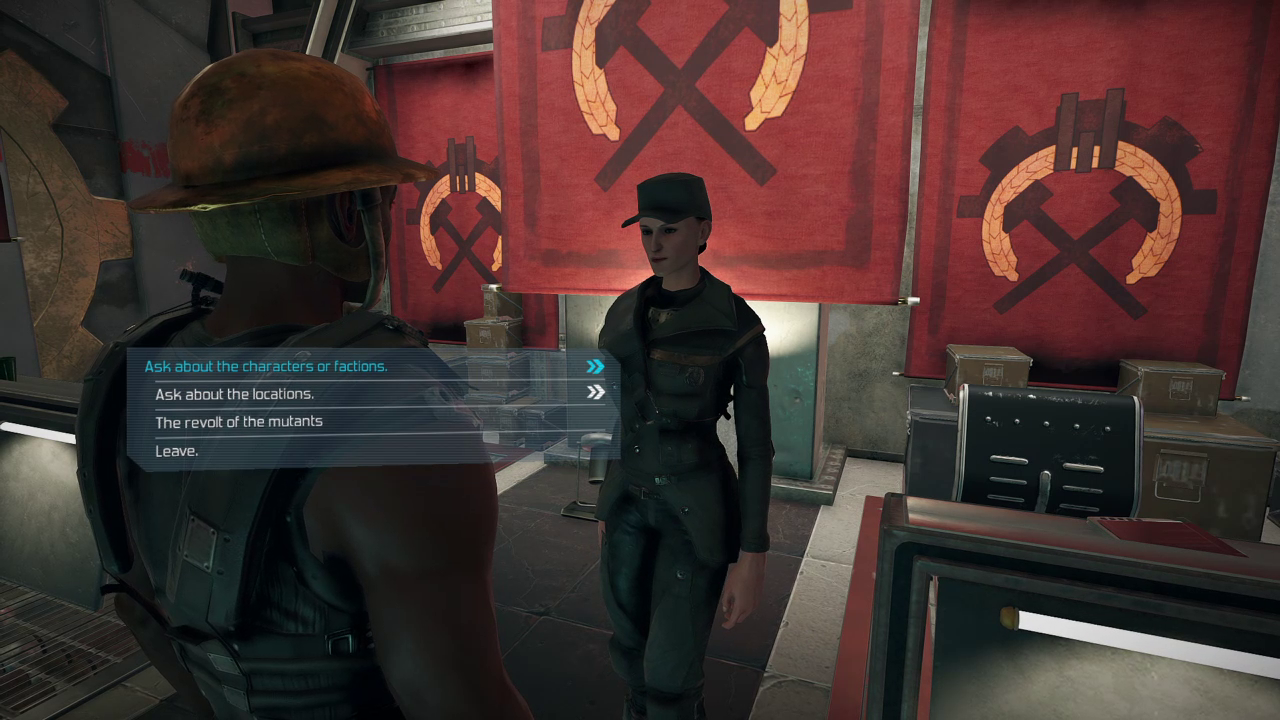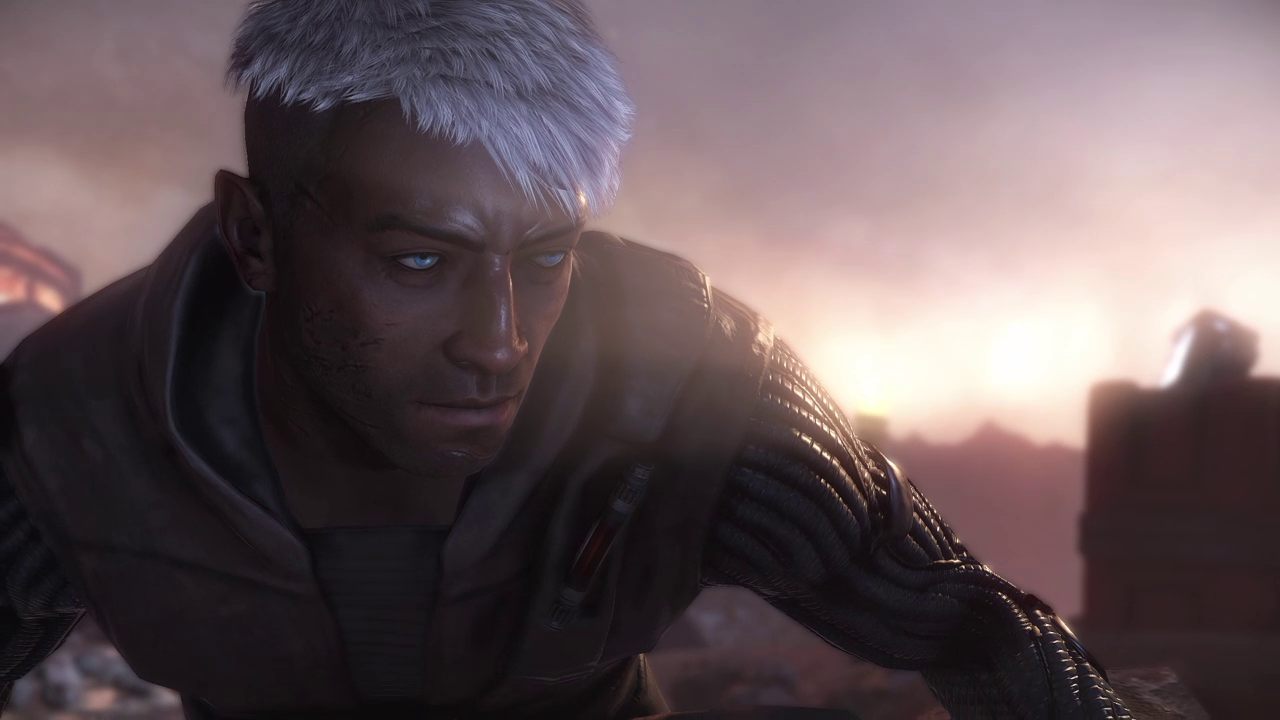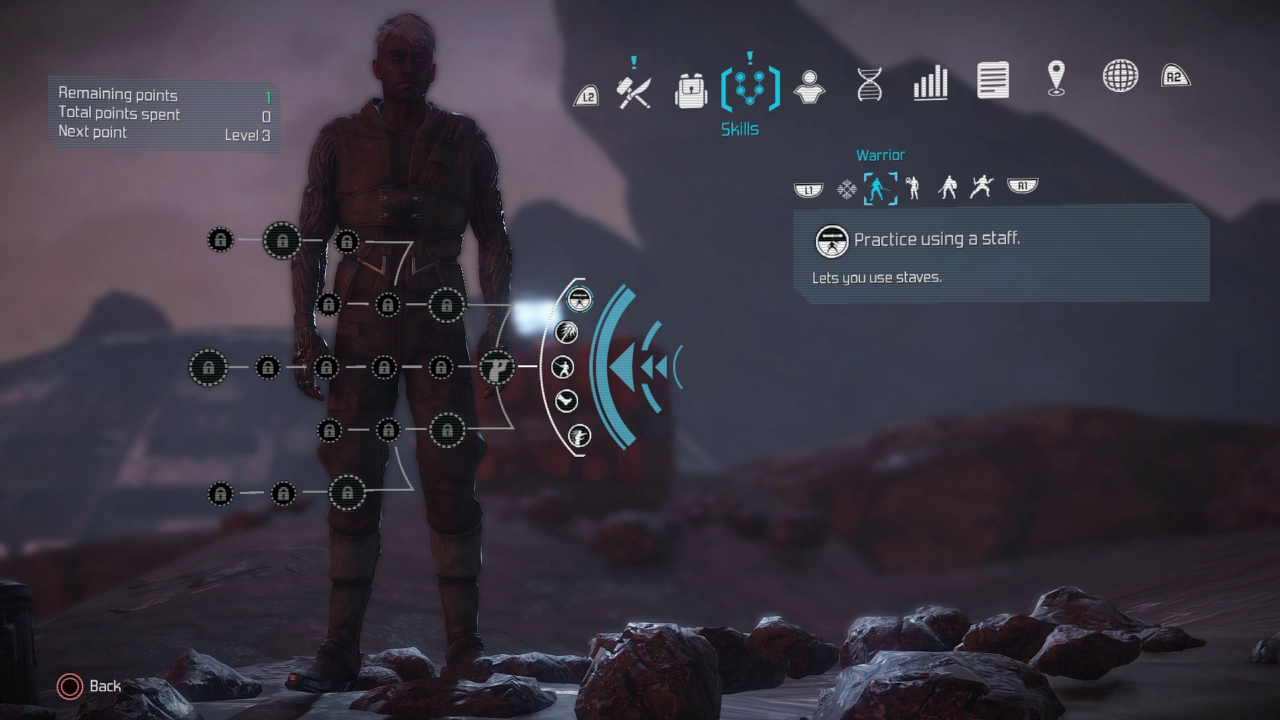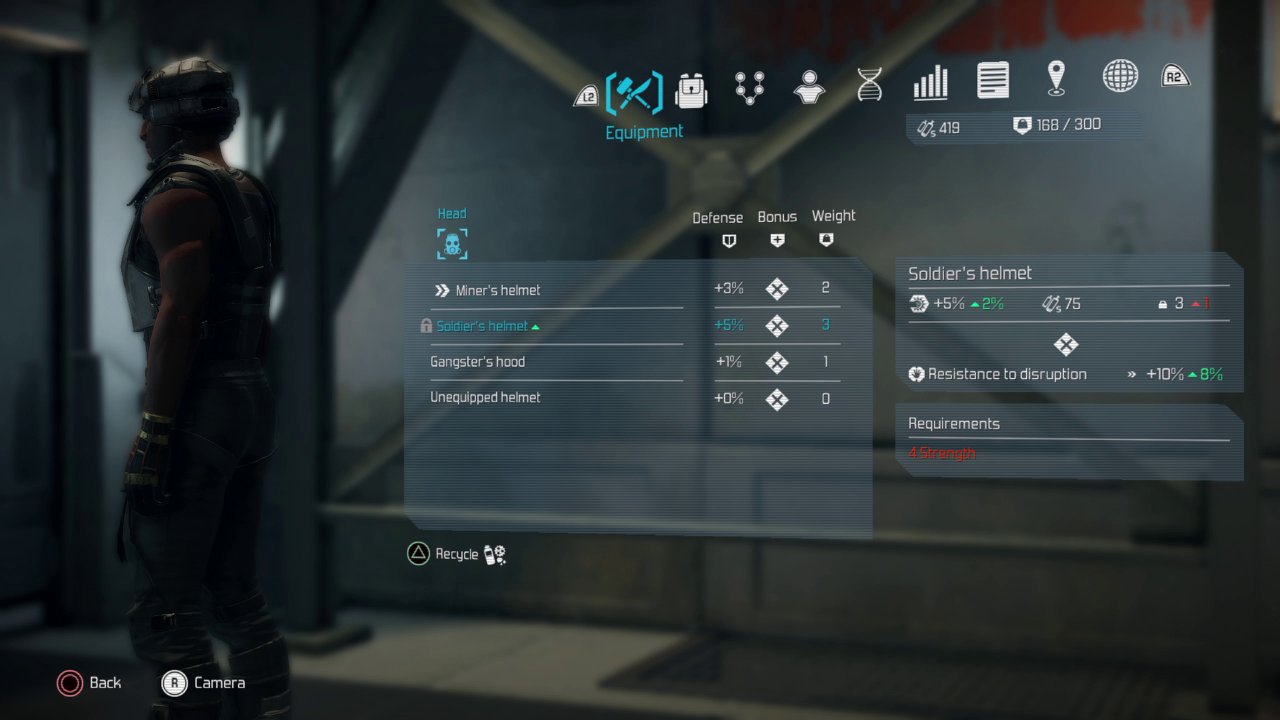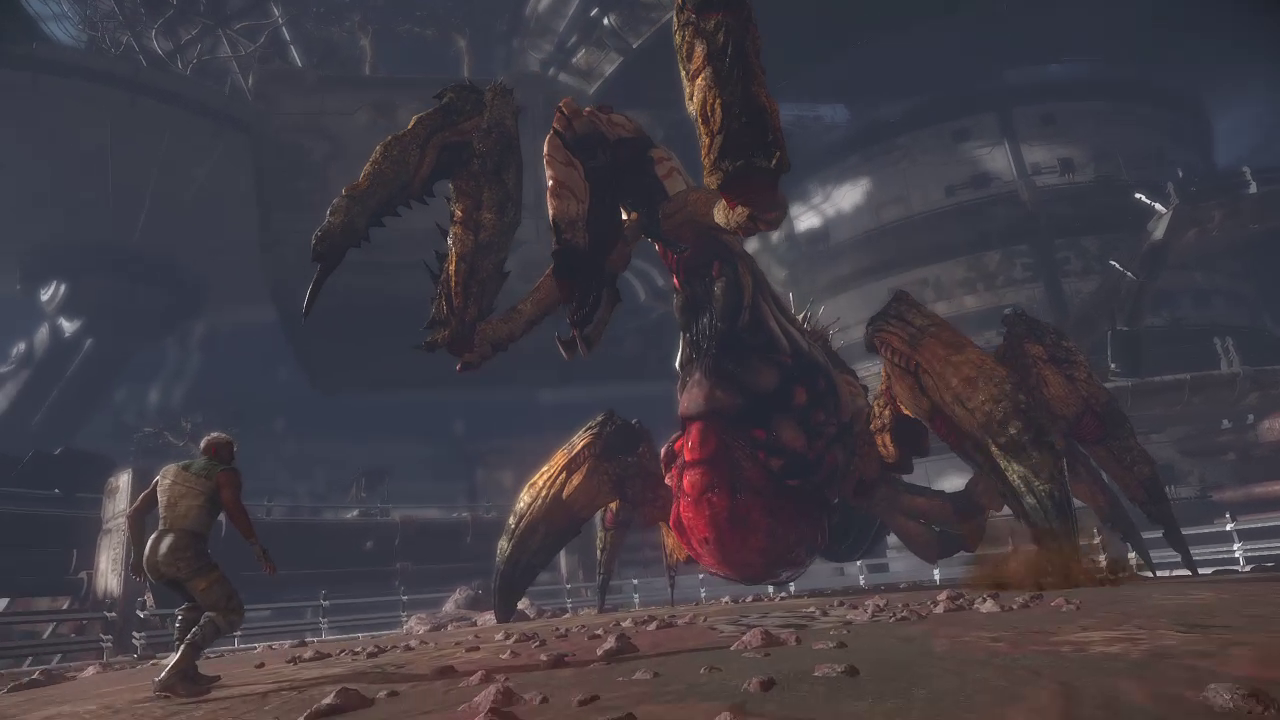There is much to like about The Technomancer. The narrative, while delivered awkwardly at first, becomes an appealing adventure that generally avoids tropes. The setting is one unlike most other games. As a follow up to the world created in Mars: War Logs, developer Spiders simply had to expand upon something they already created. Character relationships are the focus, and are very well done. However, all of these systems can't save the game from a combat system that frequently caused expletives to be thrown at the television screen.
Technomancer tells the story of colonists on Mars who have lived on that harsh planet's surface for generations and hope for rescue from Earth. A mutant race has appeared over time and are an oppressed people. Meanwhile the mutant technomancers keep their impure genetics secret in order to keep their status as an elite force. Corporations control the water, and therefore, the power. Different colonies and corporations war with each other and employ spies, soldiers, technomancers, and merchants to do so. Multiple characters are introduced along your adventure, each with their own motivations and goals. These characters are a big help in creating a compelling world. Too bad all of this is interconnected by long walks in boring areas full of frustrating combat.
You take on the role of Zacariah, a talented young technomancer about to be initiated. This begins his journey from trainee to usurper of power. You slowly make your way from loyal soldier taking orders and completing missions to outcast to errand boy for powerful leaders who return the favor in a satisfying culmination of various plot threads. Not everything is delivered gracefully, as the very beginning of a new game introduces everything through clunky voice over. And while there is no in-game encyclopedia to keep factions, characters, and relationships straight, you learn and become more adept at discerning the lore.
Despite being placed on Mars, technology is very primitive. Guns exist though don't really do much damage; instead the focus is on melee combat. Split between a dagger, a staff, and a shield and mace combo. The dagger has its own pistol but does little damage at first and is more an annoyance than viable ranged attack. You can select which stance, and therefore which weapon, freely whether in or out of combat. The dagger and pistol are the quickest, the staff has graceful movements while dodging or attacking, and the shield/mace is the tank style.
Each stance also has its own skill tree, where you can obtain new abilities and upgrade active and passive skills. As a technomancer you also have access to electric attacks, from a lightning strike to imbuing your weapon with electric energy. Disruption is a major stat for items, which determines the chance to stun your opponent and leave them open for an attack. The systems work well when you engage one-on-one, but add two or three enemies and it becomes tedious.
When you fight a singular enemy you can time your attacks, whether it be to stun, do damage, or use the stance's secondary function. Singular combat is fun as you dodge around an opponent, parry attacks, and lay onto him. The more enemies you have around you and the tougher it becomes. No longer are you trying to find an opening for a single person but for many. This lessens your chance to get a hit in and increases the ability for enemies to put you into a perpetual damage state.
Too many times was I knocked to the ground only to receive more damage the second I got up. Health doesn't regenerate and instead is relies on items that you have to use. Using items leave you vulnerable, and often an enemy armed with a gun could knock you out of the healing animation.
Enemy composition contains the same stances you have access to, including a dedicated ranged foe, and an imposing brute. Humans aren't your only opposition as mutated animal life exists on Mars as well. These creatures vary from electrified plant/scorpion hybrids to gigantic mole creatures, floating proximity balloons of death, and poison spewing monstrosities. Some defy description, which is great for building a unique world.
These creatures also utilize the same combat problem as humans: fight more than one and you're going to have to take it real slow to win. Even when playing on the Easy difficulty level I frequently died from both casual encounters and boss battles that are sprung upon you. For some of these, including the final boss, I had to abuse the item system of tonics and mines I had built up over the course of the game.
As a technomancer you are part of an elite portion of society. You serve under the corporation that runs your city, but are given a little more freedom than citizens and even soldiers. At the very beginning you are initiated and introduced to the technomancer secret. This is the spark that begins the main storyline, which revolves around both defeating an evil leader within the corporation and finding a way to contact Earth. The evolution of this plot through both your companions, the side plots, and the main quest line are interesting and compelling. Technomancer manages to craft a unique universe within a bland and stagnate science fiction genre.
As you meet and create relationships with new characters, they may clash with established friends. Early on I was tasked with executing a deserter which would enrage a fellow squad-mate if I did so. I was given the option to find and console him but ignored it which caused a rift in our partnership. His anger culminated in betrayal and I executed lethal justice in return. If I had let the deserter go and lied about his death, I might have been able to keep my partner permanently. Though it could have caused repercussions from the Captain handing out missions later on.
There is a karma system, both for the overall world and one specific to each character. Please them and you will be rewarded with bonuses while they are active in your squad. Ignore them and they might abandon you. Sometimes companions will disappear and return later, whether by choice or by chance. Frequently they will ask you for favors. Helping with personal vendettas, or simple quests that will strengthen your relationship. You can choose to listen and offer aid or refuse and focus on the task at hand.
Your overall karma is only harmed by you obtaining serum from enemies, which will also kill them. This is met with rebuffs from your companions, though never culminated in anything more than a verbal rebuke. The karma system never consequentially affected my overall game, as I was able to make my way through a majority of it without any big shifts with the major allies.
There are three major city areas, all with multiple levels, merchants, citizens in need of aid, and a hub area for you to rest, craft, and store items. Running around these areas can be a chore, especially when they contain combat sections. Sometimes this works and you circumvent an inconvenient fight. Other times you're forced to confront a group of enemies and engage with the frustrating combat system.
Eventually I reached a point where I was actively avoiding fights as much as possible simply because I wanted to continue the story without engaging with them. You gain much more experience from completing quests than defeating enemies, so this was never an issue as far as progressing my character.
The quests you are sent on are generally the menial] ones gamers expect: go here, talk to this person, fight this group, rinse, repeat. While the foundation is essentially that structure repeated, the nuance surrounding it keeps you engaged. Gathering reports from citizens about a hidden mob and chasing them out of town is fun, sans the combat. You can also attempt to pay off characters to reach your goal, or convince them of your plight via a charisma system.
Players can craft enhancements for the various equipment you will come across, from increasing its damage output or defense, to its disruption and critical hit rate, and resistance to poison or electricity. You can sell or recycle unused equipment for serum or parts respectively. Merchants sell decent items but the best will be found on unique characters, bosses, or in hard to find chests.
There are three skill trees in the game, one for your effectiveness in combat, one that determines the extent of your ability to interact with the world, and another that is tied to your fundamental stats. These include attack power, overall health, energy regeneration rate, and access to items that require a certain level to be used. Each time you level up you are given one point in one or two of these trees to use, which slowly stack over time to create a character that fits your play style.
However, when I found out that the shield and mace was a much more effective weapon set than the staff I had been using, there was no way to reapply those points to the other tree. This means you have to commit to the path you are heading down or be forced to start from scratch when you switch it up. This also means when you discover you might need to use another stance you will be significantly underpowered. Because of that, I rarely swapped to anything else once I found the shield was my best way to circumvent the annoying group fights, as its parry was essential to winning.
I really wanted to like The Technomancer during my twenty or so hours with it, but constantly I was pushed into battles that were just not fun. I liked my companions, their stories, and the overall progression of the conspiracies and faction wars occurring on Mars. It would have been so much better if every time I needed to reach a location in Ophir I wasn't forced to fight four soldiers at once. Frequently I would take damage in the middle of a swing from an off-screen enemy, or my healing would be interrupted by a bullet, or I would dodge into an attack when I swear I was pushing my stick away from it. While it would be interesting to see the results of making the opposite storyline decisions, I won't because that would mean having to relive moments where I wanted to throw my console out the window.

